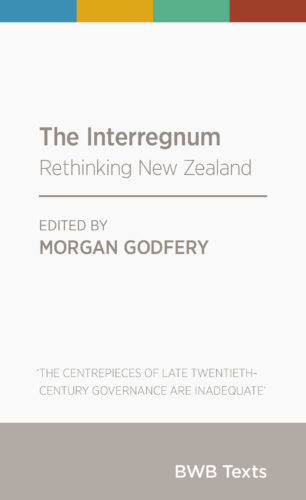
This reading carries on from here.
The second essay in The Interregnum is called ‘Speech and Silence in the Public Sphere’ by Andrew Dean. It recounts the story of the abuse copped by Eleanor Catton in the wake of her criticism of the direction the county was taking in 2015, and how this is indicative of deteriorating levels of public discourse.
Although most of the essay is devoted to quoting Philip Catton, which makes one wonder why Professor Catton didn’t write the essay himself, it aptly summarises the state of the cultural wars in New Zealand and in the West. The narrative of neoliberalism is triumphant; its victims are marginalised because their suffering goes against this narrative.
I was in Philip Catton’s History of Science class at the University of Canterbury in the year 2000. It’s curious to think about what the professor teaching that class 100 years from now will say about our time, and about the quality of our public discourse. Dean is right: our public discourse has degenerated to a shameful level, even as the Internet has theoretically made it easier than ever to share science, knowledge and truth.
Catton and Dean both have a point when they say that inequality has made the level of discourse more degenerate. The greater the inequality in a society, the more criticism of it is dismissed as “whinging” by those at the top and their lackeys in the mainstream media. Furthermore, the greater the inequality the more society becomes stratified into subgroups that speak their own dialect, so that it becomes difficult to communicate between different positions on the hierarchy.
The worse any one group of people is doing, the less their voices fit the neoliberal narrative that “Everything is better than ever, so spend spend spend!” And so, the more their voices are silenced by a mainstream media that is beholden to the same capitalist interests who support neoliberalism.
Dean refers to the same pattern that Dan McGlashan calls the “general disenfranchisement rule” in the demographic analysis Understanding New Zealand. It’s a feedback loop in which increasing inequality causes the people in the lower socioeconomic demographics to lose faith in the belief that the system represents them at all, which leads to a decreased turnout rate in elections, which leads to a system that represents them even less, leading to a further decreased rate and so on.
He also mentions the effect that neoliberalism had has on the discourse at our universities. Instead of acting as the conscience of the nation, our universities have to compete for students in order to get funding, which means that they have to present a certain image. In the case of New Zealand universities, which get a lot of international students from Asia, it is almost impossible to have a public discussion about the need for cannabis law reform.
All in all, this essay is pleasingly accurate and concise, and ends by pointing out that not only it is necessary to point out the failings of neoliberalism it is also getting harder to do because of the silencing of dissenting voices to the mainstream narrative.
